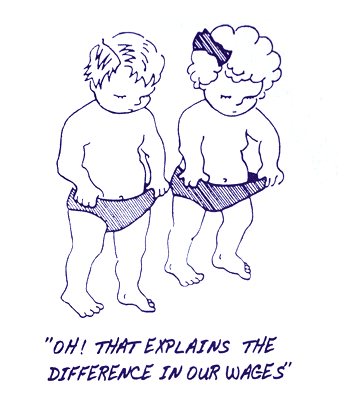He korero whakarapopoto
The first women’s unions and associations, 1878–1939
In the 19th century when women got married they usually left the workforce. They only spent a short time in paid work. Women worked as servants, shop assistants, seamstresses, nurses or teachers.
The Dunedin Tailoresses’ Union was the first women’s union, formed in 1889. It fought for shorter working hours, better conditions and more pay.
In 1914 the New Zealand Women Teachers’ Association was formed. Women were paid less than men for the same teaching job, and were not promoted to higher positions.
The Nurses’ Association started in 1909, but it was not a union – it argued that nurses should be dedicated to their work, and opposed strikes and industrial action.
Women’s organisations and employment, 1878–1939
Groups were set up by women protesting for the vote (suffragists). Some were connected to political parties.
In 1896 the National Council of Women (NCW) became an umbrella group for women’s groups to provide a united and strong voice.
Women’s organisations such as the YWCA (Young Women’s Christian Association) were concerned about women’s employment. They fought for better working conditions, shorter working hours and equal pay.
The YWCA also ran girls’ clubs and provided accommodation. In 1939 it set up the Federation of Business and Professional Women’s Clubs (BPW).
Women and unemployment
Many women and men were out of work in the 1930s depression, but women received no government help. Groups like the YWCA and NCW protested but the government did little. Relief committees were set up, but sometimes they pressured women to take jobs as servants, for little or even no pay.
Equal pay, mid-20th century
Between 1945 and 1971 the number of women workers more than doubled, to 382,000. They were paid less than men: in 1949 their minimum wage was 65% of the male minimum.
The BPW, NCW, Public Service Association and other groups set up a Council for Equal Pay and Opportunity in 1957. By 1972 the government had passed laws about equal pay, and by 1985 women earned 22% less per hour than men.
Pay equity, 1980s–2020s
Women’s organisations campaigned for ‘pay equity’ – women and men getting the same pay for jobs in similar conditions which required the same level of skill and effort and carried the same responsibility.
Women’s organisations, 1950s–2020s
As more women joined the workforce women’s groups and unions focused on childcare, flexible work hours and part-time work, and training for mothers re-entering the workforce.
Feminist groups and unions joined with groups like the NCW to promote a Working Women’s Charter. As well as pay equity, the charter’s rights included access to sex education, contraception and abortion.
Women and unions, 1970s–2020s
From the 1970s the number of women involved in unions grew. A long-term effect of women’s increasing workforce participation was an increase in the number of women in unions, and unions’ interest in women’s issues. From 1991 workers no longer had to join a union and union membership plummeted. By 2009, 18% of workers belonged to unions; around half were women. Teachers’ and nurses’ unions had a majority of women members – 94% of the Nurses’ Organisation were women in 2009.





